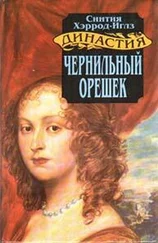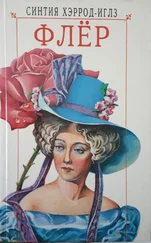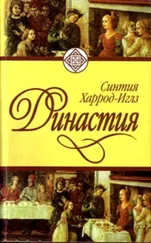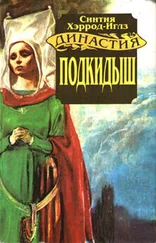Cynthia Harrod-Eagles
ANNA
For Tony – who got me through it – with all my love
Map of Eastern Europe in 1803
It was a fine spring day in 1803. The sky was a vivid, impermanent blue, and the light – the long sunlight of April – was clear and strong and without heat. Paris had been awake since before sunrise, when the carts from the countryside began to come in, bringing milk and vegetables and meat for the markets; their iron-hooped wheels had battered the milky silence out of the dawn streets, and shaken the birds awake. Now the day was broad, and the city lay, gold-grey and blue-slated in her green frame of fields and woods, humming like a giant bee skep with the intensity of her daily life.
Miss Anne Peters, governess, picked her way along the busy streets with her senses stretched to the delight of being in this strange, and strangely familiar, place. She had been in Paris since the previous November, but the dual quality of strangeness and familiarity had been with her from the very first: she had always felt as though she had known Paris from some other life.
In London, her employers lived in Margaret Street on the corner of the fashionable Cavendish Square, an area of broad, handsome thoroughfares and splendid new houses with the geometrical symmetry made possible by modern skills. From the window of her room at the top of the house, Anne had looked out on the scene with the sense that here was the very essence of the eighteenth century: clean, orderly, thriving – nature controlled by man.
But here in Paris, the streets were narrow, and the crooked mediaeval houses reared up shoulder-to-shoulder to cut out the sunlight, hanging perilously over the cobbles as though they might tumble down at any moment. Her employers’ present residence, at number eight rue St Augustine, had no single wall or floor that was straight, and the treads of the staircase sloped alarmingly from the wall towards the stairwell, as if in only temporary alliance with the laws of engineering. Anne’s room here overlooked a tumble of roofs and gables and gutters, where slate-blue pigeons cooed and strutted in the sunlight. Anne had been fascinated to see a woman opposite open the window and put the cat out onto the roof to take its daily exercise – much to the pigeons’ consternation. Below roof-level, the houses plunged into shadow, and a maze of cold, mossy little yards.
Paris teemed and thrived without regard to symmetry. And yet, different though it was in every particular, it appealed to something in Anne that longed for wild places. Though her appearance was plain and neat, as she picked her way across the cobbles of the market on the Île de la Cité her head was up, her cheeks a little coloured by the brisk breeze running off the river.
Of course, not all of Paris was shabby. The destructive turmoil of the Revolution and the stagnation of the corrupt Directory had given way to comparative stability, and there were signs of regeneration. Everywhere, new work was going on: new houses, renovations, and the first public undertakings for more than a decade. The able general, Bonaparte, had turned politician. He had made himself First Consul of the three-man Consulate, and now lived and ruled almost like a king in the splendour of Catherine de’ Medici’s Palace of the Tuileries.
England had made peace with the infant nation. It was an artificial peace, existing not because the two sides had reconciled their differences, but because ten years of war had led to a stalemate. The genius of the Corsican general, and the size of the armies he was able to raise, had made France invincible by land; the might of the King’s Navy had made England invincible by sea. Internal English politics, and Bonaparte’s need for a breathing-space, had led to the treaty of Amiens a year ago. And suddenly a generation who had never set foot outside their native land saw the opportunity for foreign travel. English people flocked in holiday mood to Paris.
The Murrays had come over in November, when England and France exchanged embassies. Sir Ralph Murray was on the staff of the English Ambassador, Lord Whitworth, and Lady Murray would not for worlds have missed the opportunity of advancing herself and her daughters in society. Lady Murray had only been a Miss Curtis, daughter of a successful coal merchant, with nothing but a pretty face and seven thousand pounds to enable her to get on in the world. She had married very well considering who she was, and she wanted her daughters to do even better. She was shrewd enough to realise that Sir Ralph’s importance would be greater in the diplomatic community of Paris than it was in the wider circles of London society.
She also believed that her girls would stand out much better against a background of French women, whom she was convinced were all flat-chested and ugly. The only two Frenchwomen she knew were the elderly émigré who made her underwear, and the governess of the children of her intimate friend, Mrs Cowley Crawford, both of whom happened to be swarthy and plain, so she clung to the idea with the determination of ignorance. Lady Murray had received the fashionable female education of thirty years ago, which meant that she could embroider exquisitely, draw prettily, dance gracefully, and sing three songs in Italian; but if she had ever been able to read and write, she had given it up entirely when she first began to put up her hair.
Anne Peters had been with the Murrays for three years, and at first she had been puzzled as to why a woman who had no use for education had chosen her to take charge of her daughters. Anne’s education was extensive. Her father had been a sea-officer, and since Anne was born during one of England’s brief periods of peace, he had been at home on half-pay with nothing to do while she was growing up. Her mother had died when she was very small, and her father had not remarried. Anne and her father had enjoyed an unusual closeness, and he had occupied his mental energies by educating her.
He had found her an apt pupil, with a hunger for knowledge which reflected his own. He taught her mathematics and geography and astronomy, the academic subjects of his trade; and Latin and Greek and philosophy, the mental furniture of the gentleman. She had inherited his musical ear, and learned French, Italian, and German from him as easily as singing, dancing, and playing the pianoforte. As his close daily companion, she learned to ride a horse and row a boat, to fish and to shoot, and to discuss politics; what she did not learn were the feminine arts.
The revolutionary war began in 1792, when Anne was twelve. Her father received an active commission in the navy, and her world, which she had viewed as permanent and immutable, was shattered. The house in which she was born and raised was given up, and Anne was taken in a hired carriage to Miss Oliver’s School in Sydney Place, Bath, where her father kissed her, enjoined her to work hard and be a good girl, and left her.
Anne found herself bewildered by the loss of his presence, and for weeks could not settle to her new life, but waited, uncomprehending, like an abandoned animal watching a closed door, for him to come back for her. After a time, the pain of missing him turned into lethargy. She took no interest in anything, and slept a great deal, slipping away at all times of day, to be found curled up in some obscure corner asleep.
Читать дальше














